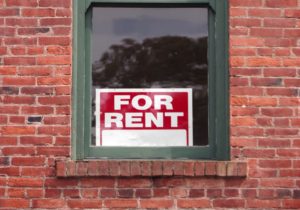Top officials in Boston Mayor Michelle Wu’s administration pushed back against strong critiques of the mayor’s rent control proposal during a City Council committee hearing Wednesday.
The hearing was the proposal’s first formal airing before the council and will be followed by at least one other listening session in the coming weeks.
Wu’s proposal to cap apartment rent increases at 6 percent, plus inflation up to a 10 percent total annual increases has received stiff pushback from real estate groups. The Greater Boston Real Estate Board launched a $400,000 ad campaign this week targeted at city residents that claims the proposal, which exempts owner-occupied buildings of up to six units, would dramatically cool the kind of housing development the mayor has argued is essential to Boston’s future.
An industry panel headed by Greater Boston Real Estate Board CEO Greg Vasil urged councilors to reconsider the proposal.
“Two-thirds of housing providers have reduced or expected to reduce investment plans due to the introduction of rent control policies” in Santa Barbara, California, Portland, Oregon and St. Paul, Minnesota, among other areas, said Leah Cuffy, director of advocacy research at the National Apartment Association.
Chief of Housing Sheila Dillon told councilors Wednesday that she doesn’t share those views.
“Anyone who suggest this would halt development is being misleading,” she said. “This prevents mistreatment in the real estate market. It would stop rent gouging and evictions if a tenant has done nothing wrong.”
Tim Davis, deputy director of policy development and research in the Office of Housing, said the city’s analysis of rents between 2012 to 2021 showed the average increase in rents would have fit under the cap. Dillon said the 6 percent-plus-inflation limit was chosen as it was “slightly above” the increase the city observed between 2021 and 2022.
The proposal also gives landlords the ability to appeal to the city for a higher increase in order to pay for serious capital improvement projects that couldn’t be paid for within the allowed cap. Any attempt to lower the 6 percent increase cap would have to be passed by both city councilors and state legislatures through a separate home rule petition process, Davis said.
Because the policy also exempts buildings under 15 years old and treats the conversion of existing, non-residential buildings to apartments as new construction, Dillon said, it would also allow developers to continue to follow existing business models while continuing to realize market returns on investment.
In total, around 55 percent of the city’s apartments would be covered by Wu’s proposal.
But while some councilors, like City Council President Ed Flynn and at-large Councilor Michael Flaherty, voiced support for portions of the measure, many pushed administration representatives to reconsider what they characterized as ineffective or overly generous concessions to developers.
“We are not giving [landlords] a limit, we are giving people an allowance,” Jamaica Plain Councilor Kendra Lara said, and pushed for the cap to be lowered closer to 2 percent plus inflation in exchange for her support for the remainder of the measure. “People are going to do what they can to make a smuch profit as possible.”
A 6 percent-plus-inflation cap, she said, would not have protected working-class East Boston renters getting priced out by an ongoing wave of demand from downtown office workers.
The 15-year exemption, which is between twice and three times the typical period over which many multifamily investors hold a property, also came in for critiques, with some councilors pushing for the figure to be reduced to 10 years.
Dillon said the administration had tried to be careful to craft a plan that wouldn’t reduce housing production.
“The market is important here,” she told councilors. “What’s going to make the difference [in moderating rents] is if we build enough housing so that we have a decent vacancy rate, that there’s enough competition in the market. … We need to give tenants some choice.”
Wednesday’s hearing made it clear that while the Wu administration will have to thread a careful needle as it seeks to put in place what the mayor has, in the past, described as “guardrails” for the rental market. In addition to crafting a measure that can pass muster with progressives on the Boston City Council, it also must pass muster on Beacon Hill given state laws controlling what municipalities can and can’t do – historically a place that has not been sympathetic to rent control policies.
“I would like to see if we have an idea of what the State House would accept and kind of work backwards…instead of sending a proposal that would die up there,” Flynn said.
But likewise, it appeared clear that city councilors feel an urgent need to prevent more large, rapid rent increases like those the city saw from 2021 to 2022.
“It’s an untenable position you have,” Roxbury City Councilor Ricardo Arroyo told the GBREB’s Vasil in response to the latter’s “blanket” opposition to any rent control bill. “It’s seeing a rising tide and saying, ‘We can’t do anything in the face of that because it might impact the people who are profiting from this situation quite well.'”







